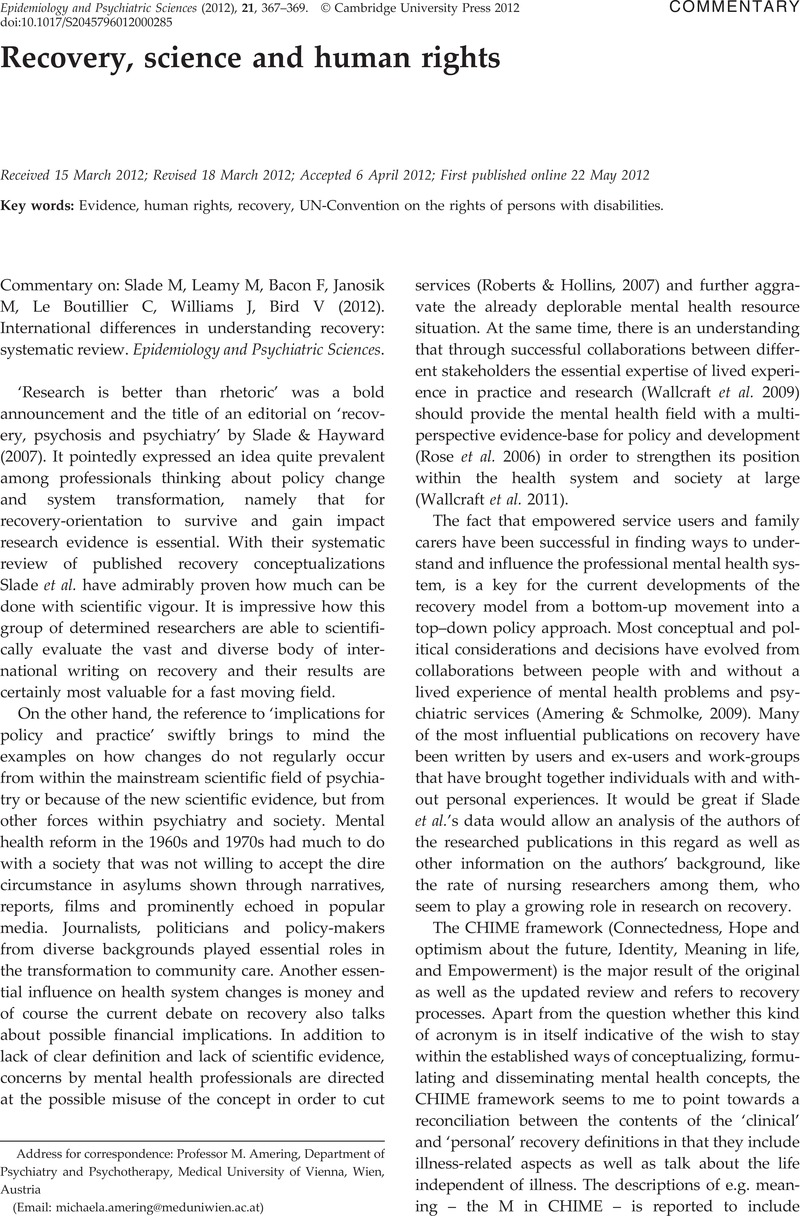Crossref Citations
This article has been cited by the following publications. This list is generated based on data provided by Crossref.
Schrank, B.
Riches, S.
Bird, V.
Murray, J.
Tylee, A.
and
Slade, M.
2014.
A conceptual framework for improving well-being in people with a diagnosis of psychosis.
Epidemiology and Psychiatric Sciences,
Vol. 23,
Issue. 4,
p.
377.
Schrank, B.
Amering, M.
Hay, A. Grant
Weber, M.
and
Sibitz, I.
2014.
Insight, positive and negative symptoms, hope, depression and self-stigma: a comprehensive model of mutual influences in schizophrenia spectrum disorders.
Epidemiology and Psychiatric Sciences,
Vol. 23,
Issue. 3,
p.
271.
Zoppei, Silvia
Lasalvia, Antonio
Bonetto, Chiara
Van Bortel, Tine
Nyqvist, Fredrica
Webber, Martin
Aromaa, Esa
Van Weeghel, Jaap
Lanfredi, Mariangela
Harangozó, Judit
Wahlbeck, Kristian
and
Thornicroft, Graham
2014.
Social capital and reported discrimination among people with depression in 15 European countries.
Social Psychiatry and Psychiatric Epidemiology,
Vol. 49,
Issue. 10,
p.
1589.
Schmolke, Margit
Amering, Michaela
and
Svettini, Alessandro
2016.
Person Centered Psychiatry.
p.
97.
Austin, Stephen Fitzgerald
2018.
Promoting well-being in psychosis.
Nordic Journal of Psychiatry,
Vol. 72,
Issue. 6,
p.
437.
Kuek, Jonathan Han Loong
Raeburn, Toby
Chow, Melissa Yan Zhi
and
Wand, Timothy
2022.
Lived experience perspectives of factors that influence mental health recovery in Singapore: a thematic analysis.
Mental Health and Social Inclusion,
Kuek, Jonathan Han Loong
Raeburn, Toby
Chow, Melissa Yan Zhi
and
Wand, Timothy
2023.
Lived experiences of mental health conditions in Singapore: A constructivist grounded theory study.
International Journal of Social Psychiatry,
Vol. 69,
Issue. 3,
p.
735.
Kuek, Jonathan Han Loong
Raeburn, Toby
Chow, Melissa Yan Zhi
and
Wand, Timothy
2024.
A Constructivist Grounded Theory Study on Mental Health Recovery from a Lived Experience Perspective in Singapore.
Community Mental Health Journal,
Vol. 60,
Issue. 2,
p.
394.



